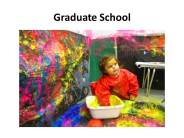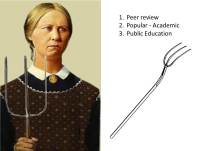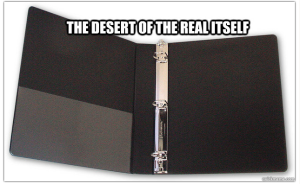 How do we grow a vibrant community of education researchers? In an earlier post I talked about how skill shares can be complimented by problem-shares to strengthen our research communities. This dual approach to professional development animated discussion at last week’s MERJ/HEA Retreat. MERJ, The Media Education Research Journal, became the first journal focused on media education research with its premier publication in Spring 2010. The journal aims to foster a space for exchange between scholars, practitioners and teachers from different countries, approaching media education as a social practice.
How do we grow a vibrant community of education researchers? In an earlier post I talked about how skill shares can be complimented by problem-shares to strengthen our research communities. This dual approach to professional development animated discussion at last week’s MERJ/HEA Retreat. MERJ, The Media Education Research Journal, became the first journal focused on media education research with its premier publication in Spring 2010. The journal aims to foster a space for exchange between scholars, practitioners and teachers from different countries, approaching media education as a social practice.
MERJ’s day long, workshop retreat was supported by the Higher Education Academy and hosted by Birmingham City University on 17 May 2013. The event kicked off with a brief set of reflections. Members of the MERJ editorial board narrated the (often crooked) roads they took to becoming published media education researchers. In the spirit of problem-sharing, John Potter’s opening contribution paid tribute to Samuel Beckett’s famous quote, “Try again. Fail again. Fail better.” And with capitalised letters shouting from his power point slide, Richard Berger reminded participants to be prepared for revisions — followed by more revisions.
In similar spirit, Mark Readman exposed his personal publishing journey with MERJ, sharing the initial critical feedback he got from peer reviewers — including that it was ‘reference-lite’ — for his piece that became “Inspecting Creativity: Making the Abstract Visible” in MERJ 2:1. Assuring early career authors that most reviewers want to nurture rather than rip-apart submissions, MERJ publisher John Atkinson said editors were not “like a restaurant reviewer who wants crap food so he can slag it off.” Alex Kendall also spoke of accountability in the peer review process, drawing attention to the Online Education Research Journal whose reviews reverse anonymity, with peer reviewers attaching their names to their feedback.
Once researchers are ready to face the publishing process, the next challenge is where to submit. Education journals span many disciplines, methods and audiences.Dan Ashton discussed how we can take different aspects of our doctoral and later research projects and gear them toward different journals. Placing his own work across education, workplace studies and technology outlets, he identifies spaces for critical intervention that can open up new publishing venues and networks for future funding partners.
Other funding strategies that panellists discussed included aiming at small scale grant calls and, as Alex Kendall advised, making sure to ask “How can I use this call to do the project I want?” before piling on the paperwork. In the same vein, she stressed the importance of writing for audience rather than outlet, “Care about your output and the REF will come naturally.” Another senior researcher echoed this sentiment, “Stop worrying and start writing in the direction you want. Let the REF be the elephant in the room.” 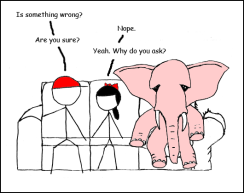
Beyond the mental blocks to output that come with REF surveillance culture, research requires time and resources–two things many academics find themselves short of, particularly as today’s workloads grow and HE funding shrinks. Add on top of this a second job, family or other external commitments and carving out space to make publication possible becomes a huge challenge. To move these challenges from personal pitfalls where we blame ourselves, to shared structural constraints, MERJ retreat leaders had us start off with a go around on barriers–or as we dubbed it a ‘whinge session’. Taking it in turns to identify what barriers stood in the way to us doing the work we want, my group identified interdisciplinary tensions as a major obstacle. In particular we talked about the disjunction between ‘media studies’ and ‘education research’. One group member described the gap between media studies and education research as ‘a wasteland.’ This resounded with MERJ editors’ provocation in their foundational issue, referring to media education research in the UK as “a void.”
Despite its origins in literacy movements, until recently media studies, as a field, has offered little in the way of reflexive pedagogical research or shared cultures of best practice teaching. While work on multimedia and digital learning is flourishing, it’s Anthropology, Geography and STEM fields that lead the way. As experts in media practice and theory, our discipline should be setting–not following–the example in 21st century learning innovation. MERJ, along with the Centre for Excellence in Media Practice and the annual Media Education Summit are working to fill this void, bringing together like-minded media educators to advance and promote the amazing work going on in our research, classrooms and curricular development. 
Events like the MERJ retreat are crucial for building a community of reflexive media education practitioners and researchers. Working from the ‘interdisciplinary wasteland’ between the borders of media studies and education research, means we need extra nourishment to grow our nascent field. Identifying the barriers and building ways over and through them together is what makes us develop. Moreover, coming together and aggregating our plethora of impactful outputs reveals the potentials of this budding media education community in the UK. With tuition fee rises and changing expectations for HE student experience, now is the time for grant agencies and institutions to invest resources and energy into media education research.


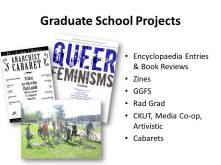 There will also be people who notice, though they may be ‘friends in low places’. But it is often these friends in low places that are the most crucial part of your network, they are who support you, who bring you with them as their careers progress, who offer guidance, professional development and emotional support. While many graduate students think they should be networking up, it is equally, if not more important, to be networking across, and mentoring those coming up behind you.
There will also be people who notice, though they may be ‘friends in low places’. But it is often these friends in low places that are the most crucial part of your network, they are who support you, who bring you with them as their careers progress, who offer guidance, professional development and emotional support. While many graduate students think they should be networking up, it is equally, if not more important, to be networking across, and mentoring those coming up behind you.